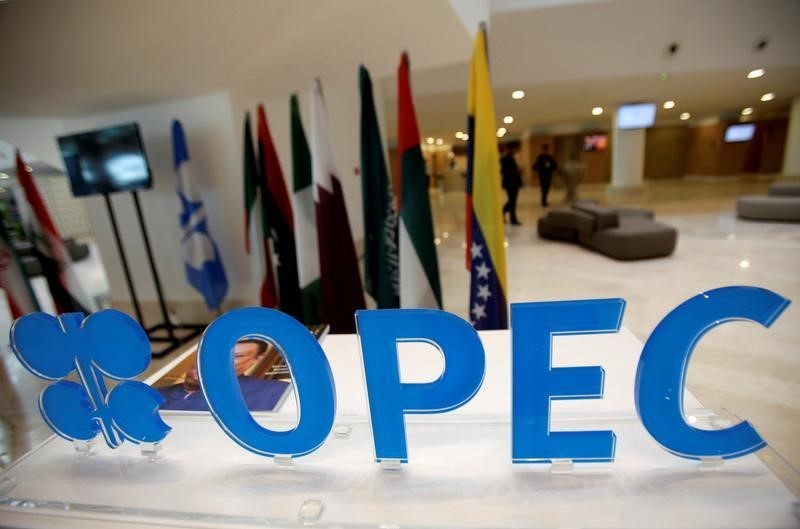By Barani Krishnan
Investing.com -- A bipartisan group of U.S. senators want to reintroduce legislation to fight price fixing in oil by the Organization of Petroleum Exporting Countries, or OPEC, a news release on the effort said on Wednesday.
The No Oil Producing and Exporting Cartels Act, or NOPEC, bill aims to “improve fairness and stability in the global oil market” by allowing the U.S. federal government to take action against price fixing by OPEC, the release said.
“We’ve seen time and again how OPEC has colluded to set global oil prices, bringing uncertainty and high prices to consumers around the globe,” Chuck Grassley, a senator with the Republican party, was quoted saying of the initiative jointly sponsored by fellow Republican senator Mike Lee and two Democrats — Amy Klobuchar and Dick Durbin.
The senators said OPEC needs to know that the United States was committed to stopping its anti-competitive behavior and that they intend to “send a clear message to the oil cartel that its days of illegally pricing and distributing petroleum products are numbered.”
“Competition in international oil markets helps ensure that American families pay fair prices at the pump,” Klobuchar said.
“But current law has made the Justice Department powerless to stop the 13 largest oil producing countries from manipulating prices and driving up costs. This bipartisan legislation would allow U.S. antitrust laws to be enforced against these oil producers. No one is above the law. Yet, OPEC continues to demonstrate its willingness to engage in illegal, anticompetitive, and extortionary means to enrich its members at the expense of consumers. It's time to change that.”
The Senate has repeatedly tried to police OPEC over the years with the NOPEC law, stopping each time after the cartel’s leader Saudi Arabia threatened to retaliate by over-pumping oil and flooding the market to cause a price crash that would sink U.S. oil drillers.
In 2020, after a brief row with Russia during the height of the coronavirus pandemic, Saudi Arabia went on a massive production campaign, driving U.S. crude prices to minus $40 per barrel at one point and sending scores of smaller-sized oil producers in the United States out of business.
The Saudis and Russians later resolved their differences and the broader OPEC+ alliance of 23 oil producers that they jointly lead has been cutting output for almost three years now. Brent the global benchmark for crude prices, hit 14-year highs of above $130 a barrel a year ago on supply concerns, and currently trades at above $80.
